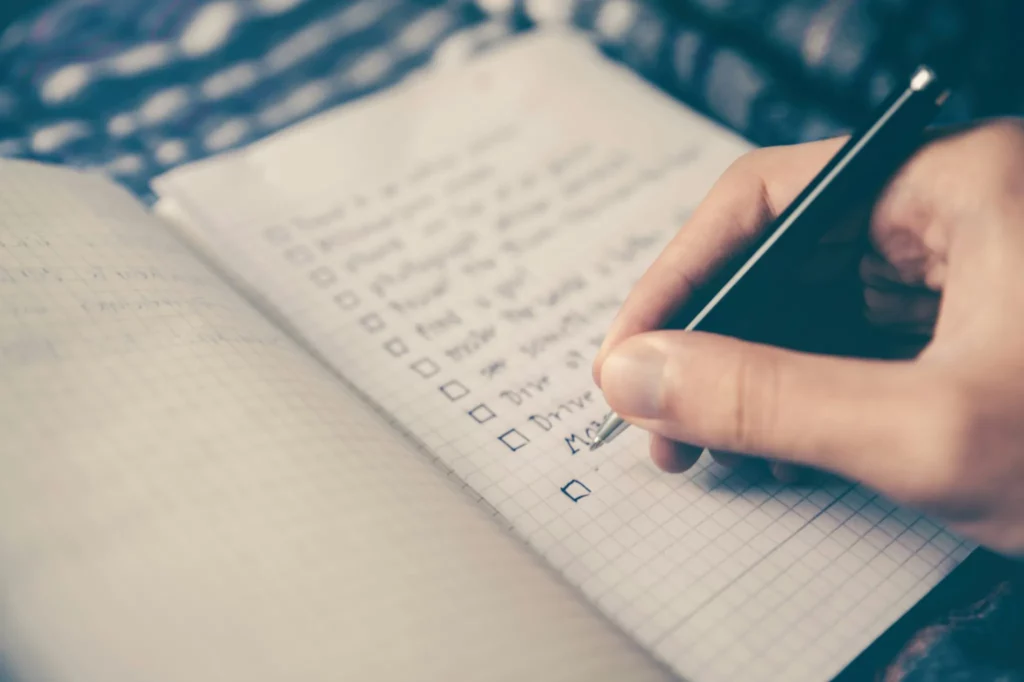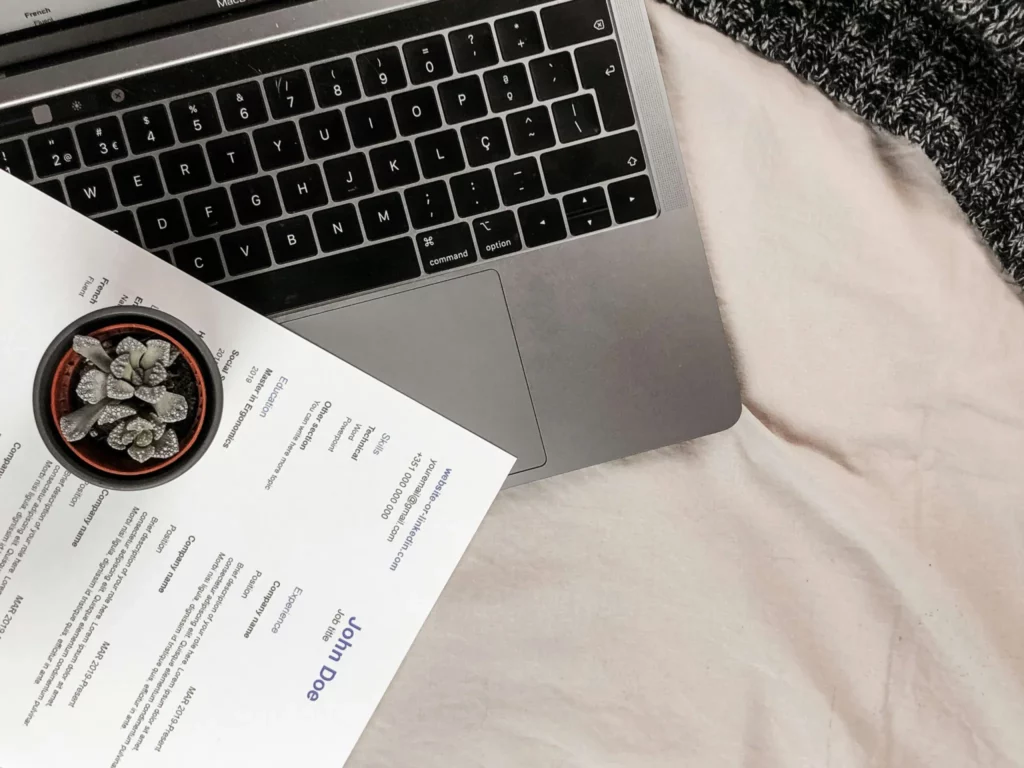Ace your Canadian job interview with these essential tips and etiquette guidelines
Securing a job interview is an exciting milestone in your career journey. Preparing thoroughly for your job interview is essential to make a lasting impression and increase your chances of landing the job. From understanding Canadian workplace culture to mastering common interview questions, this guide will equip you with the necessary tools and strategies to ace your job interview in Canada.
What are some of the key interview tips to keep in mind?
 Research the Company:
Research the Company:
Before stepping into the interview room, take the time to research the company thoroughly. Understand its mission, values, products/services, recent news, and any notable achievements. Familiarize yourself with the company culture to ensure it aligns with your own values and work style. This knowledge will not only demonstrate your genuine interest in the organization but also help you tailor your responses during the interview.
 Understand the Job Role:
Understand the Job Role:
Carefully review the job description to gain a clear understanding of the role’s responsibilities, required skills, and qualifications. Make a list of how your experiences, skills, and accomplishments align with the job requirements. During the interview, be prepared to discuss specific real-life examples that showcase your suitability for the role.
 Practice Common Interview Questions:
Practice Common Interview Questions:
While you can’t predict every question you’ll be asked during an interview, preparing responses to common interview questions can help you articulate your thoughts more effectively. Practice answering questions about your strengths, weaknesses, past experiences, and how you’ve handled various challenges in the workplace. Additionally, prepare specific examples to illustrate your skills and achievements.
 Highlight Your Accomplishments:
Highlight Your Accomplishments:
Be ready to discuss your accomplishments and contributions in previous roles. Quantify your achievements whenever possible, using metrics such as revenue generated, cost savings, or project outcomes. Canadian Employers value candidates who can demonstrate tangible results and a track record of success.
 Brush Up on Canadian Workplace Etiquette:
Brush Up on Canadian Workplace Etiquette:
Understanding Canadian workplace culture and etiquette is crucial for a successful job interview. In Canada, punctuality is highly valued, so ensure you arrive on time or slightly early for your interview. Maintain eye contact, offer a firm handshake, and address your interviewer by their last name unless invited to use their first name.
 Prepare Questions for the Interviewer:
Prepare Questions for the Interviewer:
Towards the end of the interview, you’ll likely have the opportunity to ask questions. Prepare insightful questions that demonstrate your genuine interest in the role and the company. Inquire about the company’s future goals, opportunities for professional development, and the team dynamics. Avoid questions related to salary and benefits until a job offer is extended.
 Conduct Mock Interviews:
Conduct Mock Interviews:
Consider conducting mock interviews with a friend, family member, or mentor to simulate the interview experience. Request feedback on your communication style, body language, and responses to questions. Use this feedback to refine your interview technique and boost your confidence.
 Research Canadian Labour Laws and Regulations:
Research Canadian Labour Laws and Regulations:
Familiarize yourself with Canadian labour laws, regulations, and workplace rights relevant to your field. Understanding topics such as employment standards, workplace safety, and discrimination laws will not only enhance your understanding of the Canadian job market but also demonstrate your commitment to compliance and professionalism.
 Have an elevator pitch ready:
Have an elevator pitch ready:
Crafting a short pitch about yourself is essential. It’s like giving a quick intro about who you are and what you’re good at. Imagine you’re in an elevator and only have a short time to talk – that’s why it’s called an elevator pitch. Your pitch should cover things like your skills, professional experiences, and what kind of job you’re looking for. Keep it short and interesting, so it catches the listener’s attention right away. This is your chance to make a good first impression.
 Keep some work samples ready:
Keep some work samples ready:
If you have any work examples or projects you’re proud of, it’s a good idea to gather them neatly. These could be things like reports you’ve written, art you’ve created, or projects you’ve completed. Having these samples ready can help you show off your skills during the interview. Make sure they’re easy to look through and understand. You might want to put them together in a portfolio or bring them in a folder.
 Know your resume well:
Know your resume well:
Make sure you know your resume well. The interviewer might ask you about things like your past jobs, education, and skills. Be ready to talk about these things and give examples of how you’ve used your skills in the past. It can be helpful to review your resume before the interview so everything is fresh in your mind.
 Dress appropriately:
Dress appropriately:
Finally, think about what you’re going to wear to the interview. It’s important to dress appropriately and make a good impression. Choose something clean, neat, and professional. It’s better to be slightly overdressed than underdressed. Make sure your clothes fit well and are comfortable to wear. This will help you feel more confident during the interview.
 Reach before time:
Reach before time:
Do what it takes, and get there before time. Use Google Maps and hop on to your preferred mode of public transit and reach the venue well beforehand. If you plan to take your car or motorbike, account for the extra time that you may need to spend looking for a parking slot.
What etiquette should one follow during Canadian job interviews?
In Canada, there are certain etiquettes to follow when attending job interviews, which can help you make a positive impression:
- Courtesy: Politeness and courtesy are highly valued in Canadian culture. Greet the interviewer with a firm handshake, make eye contact, and address them using their last name (e.g., Mr. Smith, Ms. Johnson) unless invited to use their first name. Throughout the interview, maintain a respectful and attentive demeanor, actively listening to the interviewer’s questions and responding thoughtfully.
- Communication: Effective communication skills are essential during job interviews in Canada. Speak clearly and confidently, and avoid using slang or overly informal language. Be prepared to articulate your thoughts, experiences, and qualifications concisely, providing specific examples to support your claims.
- Active Listening: Demonstrating active listening skills during the interview is important. Pay close attention to the interviewer’s questions and comments, and respond thoughtfully. Take pauses before answering to gather your thoughts and ensure you understand the question fully before providing a response.
- Cultural Sensitivity: Canada is known for its cultural diversity, and employers value candidates who demonstrate cultural sensitivity and inclusivity. Avoid making assumptions or generalizations based on cultural backgrounds, and treat everyone you encounter during the interview process with respect and professionalism.
- Table manners: If you find yourself in an interview at a restaurant, it’s essential to remember basic table manners. Small things matter: Follow the lead of your interviewer when ordering. Avoid selecting the most expensive items on the menu and opt for dishes that are easy to eat gracefully. Consider any dietary restrictions or preferences of your interviewer when making your selection. Take small, manageable bites and chew with your mouth closed. Avoid talking with food in your mouth and wait until you’ve swallowed before speaking.
- Follow-Up: Sending a thank-you email or note after the interview is considered courteous and professional in Canada. Use this opportunity to express your gratitude for the opportunity to interview, reiterate your interest in the position, and briefly summarize why you’re a good fit for the role. Personalize the message based on your conversation during the interview and send it within 24-48 hours after the interview.
Mastering Canadian etiquette during job interviews is not just about following a set of rules; it’s about demonstrating respect, professionalism, and cultural awareness.
What are some of the most commonly asked interview questions in Canada?
In Canada, job interview questions can vary depending on the industry, company, and specific role. However, some commonly asked interview questions in Canada often revolve around the following themes:
- Tell me about yourself.
- What are your strengths and weaknesses?
- Can you describe a time when you faced a challenge at work and how you resolved it?
- What interests you about this position/company?
- How do you handle stress and pressure?
- Can you provide an example of a successful project you completed and your role in it?
- How do you prioritize tasks and manage your time effectively?
- Describe a situation where you had to work in a team. What was your role, and what was the outcome?
- Where do you see yourself in five years?
- Why should we hire you for this position?
These questions are often designed to assess your qualifications, experience, problem-solving abilities, teamwork skills, and cultural fit with the company. It’s essential to prepare for these common interview questions by reflecting on your experiences, identifying relevant examples, and articulating your responses clearly and confidently.
What are some of the questions that your interviewer cannot ask you?
In Canada, there are laws and regulations in place to protect job seekers from discrimination and ensure fair treatment during the interview process. As a result, there are certain questions that interviewers are not allowed to ask candidates during job interviews. Some of these questions include:
- Age: Interviewers cannot ask about your age or date of birth, as age discrimination is prohibited under Canadian human rights legislation.
- Marital or Family Status: Questions about your marital status, family situation, or plans for having children are considered discriminatory and should not be asked during an interview.
- Gender Identity or Sexual Orientation: Interviewers cannot inquire about your gender identity, sexual orientation, or related personal matters, as this information is irrelevant to your qualifications for the job.
- Race, Ethnicity, or National Origin: Questions about your race, ethnicity, or nationality are prohibited, as these factors should not influence hiring decisions.
- Religion or Beliefs: Interviewers cannot ask about your religion, religious practices, or beliefs, as this information is unrelated to your ability to perform the job.
- Disability or Health Status: Questions about your disability, health status, or medical history are not allowed, except in limited circumstances where they directly relate to the requirements of the job.
- Pregnancy or Childcare Arrangements: Interviewers cannot ask about your pregnancy status, plans for having children, or childcare arrangements, as these are considered discriminatory inquiries.
- Financial Status or Credit History: Questions about your financial status, credit history, or debts are not permitted, unless they are directly relevant to the job and required by law.
- Criminal Record: Interviewers cannot ask about your criminal record or any charges or convictions unless it is directly related to the job requirements and necessary for the position.
- Citizenship or Immigration Status: Questions about your citizenship status, immigration status, or country of origin are not allowed, as long as you are legally entitled to work in Canada.
If you encounter inappropriate or illegal questions during an interview, you have the right to refuse to answer or address your concerns with the appropriate authorities. Stay calm, use tact and feel free to politely decline to answer. If you believe the question was asked unintentionally or out of ignorance rather than malice, you can address the concern directly. Before taking any action, consider whether the employer’s intentions were discriminatory or if the question was asked innocently. If you believe it was a genuine mistake, you may choose to address the issue informally with the interviewer or HR representative.
Ultimately, trust your instincts and prioritize your own comfort and well-being. If you feel uncomfortable or discriminated against during the interview process, it may be a sign that the company’s culture is not a good fit for you.
What are the different styles of interviews that I could expect in Canada?
In Canada, job seekers may encounter various types of interviews, each with its own format and purpose. Some of the most common types of interviews include:
- Traditional One-on-One Interview: This is the most common type of interview, where a single interviewer asks questions to assess the candidate’s qualifications, skills, and fit for the role. It typically involves a conversation between the interviewer and the candidate.
- Panel Interview: In a panel interview, the candidate is interviewed by a group of two or more interviewers simultaneously. These interviewers may include hiring managers, team members, HR representatives, or other stakeholders. Panel interviews allow multiple perspectives to be considered and are often used for roles that require collaboration or involve multiple stakeholders.
- Behavioral Interview: Behavioral interviews focus on the candidate’s past behavior and experiences to predict their future performance. Interviewers ask situational or behavioral questions to assess how candidates have handled specific situations in the past. The STAR method (Situation, Task, Action, Result) is commonly used to structure responses in behavioral interviews.
- Case Interview: Case interviews are common in fields such as consulting, finance, and business. Candidates are presented with a real or hypothetical business problem and asked to analyze the situation, develop a solution, and communicate their reasoning. Case interviews assess problem-solving skills, analytical thinking, and the ability to think critically under pressure.
- Group Interview: Group interviews involve multiple candidates being interviewed together by one or more interviewers. Group interviews may include group discussions, team activities, or role-playing exercises to assess candidates’ communication skills, teamwork abilities, and interpersonal dynamics. Canadian employers use group interviews to observe how candidates interact with others and collaborate in a group setting.
- Phone Interview: Phone or video interviews are conducted remotely, typically before an in-person interview. They are often used as initial screening interviews to assess candidates’ qualifications and determine if they are a good fit for the role. Phone or video interviews require candidates to effectively communicate without the benefit of face-to-face interaction.
- Sequential or Multiple Interviews: Sequential or multiple interviews involve candidates meeting with several interviewers or interview panels over multiple rounds. Each round may focus on different aspects of the candidate’s qualifications, skills, or cultural fit. Sequential interviews are common for senior-level positions or roles with a rigorous selection process.
Understanding the different types of interviews and their respective formats can help you prepare effectively and adapt to various interview settings in Canada.




